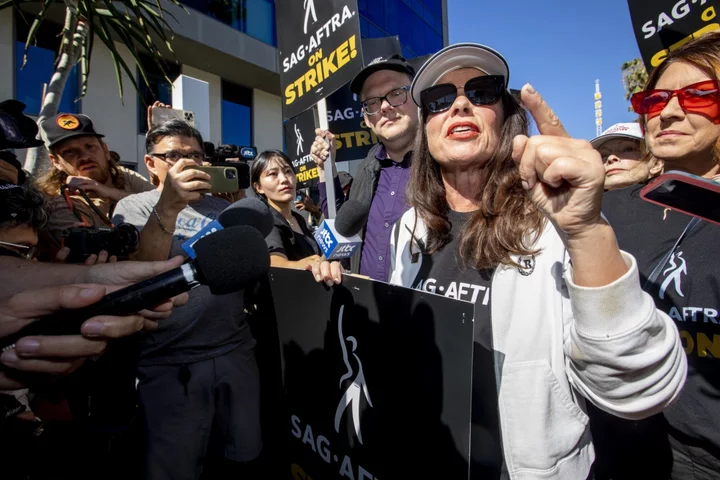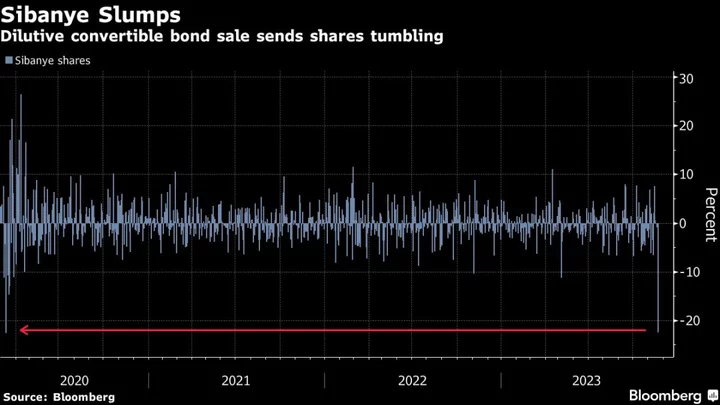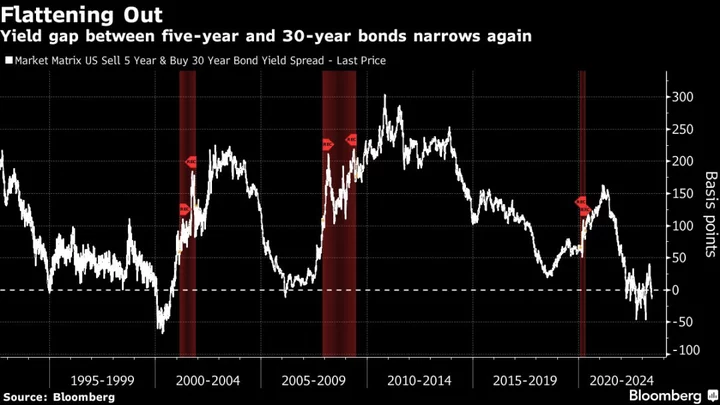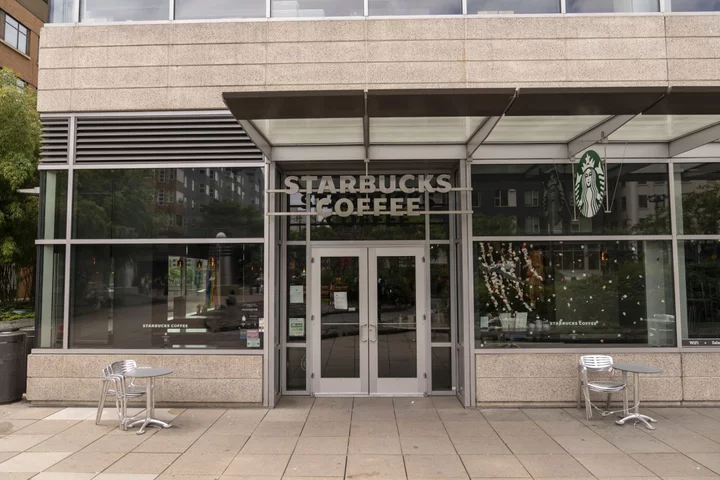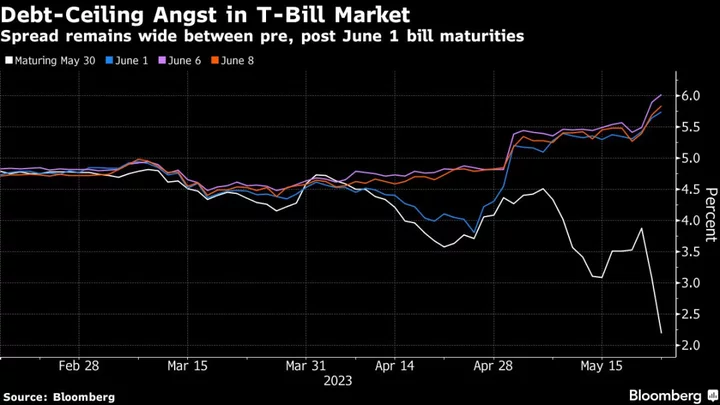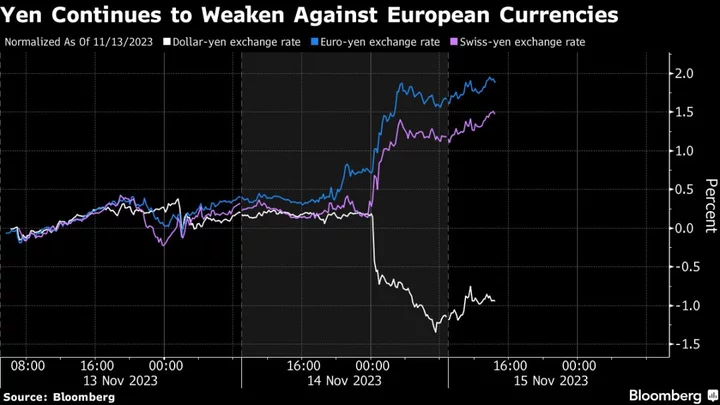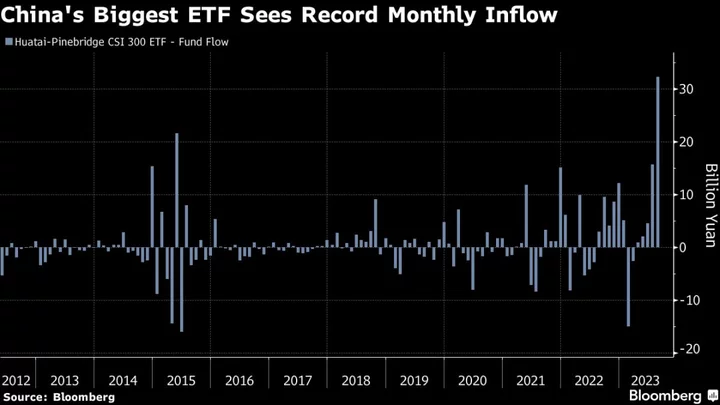Labor is having a moment, and Wall Street has taken note.
S&P 500 executives and analysts talked about unions on earnings calls more this year than any other on record, according to data going back two decades. Mentions of unions and related terms, such as strikes and labor contracts, rose almost 80% from a year ago and surged more than three-fold from 2021, according to a Bloomberg News analysis of transcripts. The subject was brought up on the calls of 81 companies, or 16% of the index.
America’s labor movement showed renewed strength this year across several industries. Strategic strikes and stunning contract wins have brought record-breaking wage hikes for workers and billions in increased costs for major companies.
In the latest round of earnings calls, carmakers Ford Motor Co. and General Motors Co. talked about the financial hit from six-week United Auto Workers strike. All told, the work stoppage cost Ford $1.3 billion. GM put its losses at $800 million through Oct. 24. Both companies pulled their guidance after the strike made their financial futures too difficult to predict.
Read More: Unions Are Winning Big for the First Time in Decades
In Hollywood, actors ended their 118-day strike on Thursday after reaching a tentative agreement with studios, more than a month after writers came to a deal. But before the latest resolution was reached, media companies such as Paramount Global and Netflix Inc. reckoned with the impact of the work stoppages on earnings calls. Paramount put the strike-related losses at $60 million on its call last week.
Other companies, like United Parcel Service Inc. and Southwest Airlines Co., managed to sidestep major strikes. Executives briefed analysts and investors on what the new deals mean for the bottom line and how they’re planning to offset higher labor costs.
Those executives still in active negotiations braced investors for higher wages. On a call last week, before Caesars Entertainment Inc. reached a tentative agreement with hotel workers, the Las Vegas casino giant’s Chief Executive Officer Thomas Reeg primed analysts.
“You should expect that when we reach agreement on a contract, it's going to be the largest increase that our employees have seen” in four decades, Reeg said. “That's well deserved. It's anticipated in our business model.”
Other companies acknowledged the ripple effect of strikes. Railroad executives at Union Pacific Corp., Norfolk Southern Corp. and CSX Corp. said that the auto workers’ strike meant carmakers shipped fewer vehicles. Delta Air Lines Inc. said business travel in and out of Los Angeles took a hit as strikes by writers and actors halted production.
At the same time, executives in other sectors dispelled concerns about fallout. In response to a question from an analyst, staffing firm Robert Half Inc. CEO Keith Waddell said there’s “very, very, very little impact” on the firm’s business from the major work stoppages.
Even though high-profile strikes in Detroit and Hollywood have been resolved, Wall Street may have to contend for years with a reenergized labor movement that’s already talking about its next big targets.

